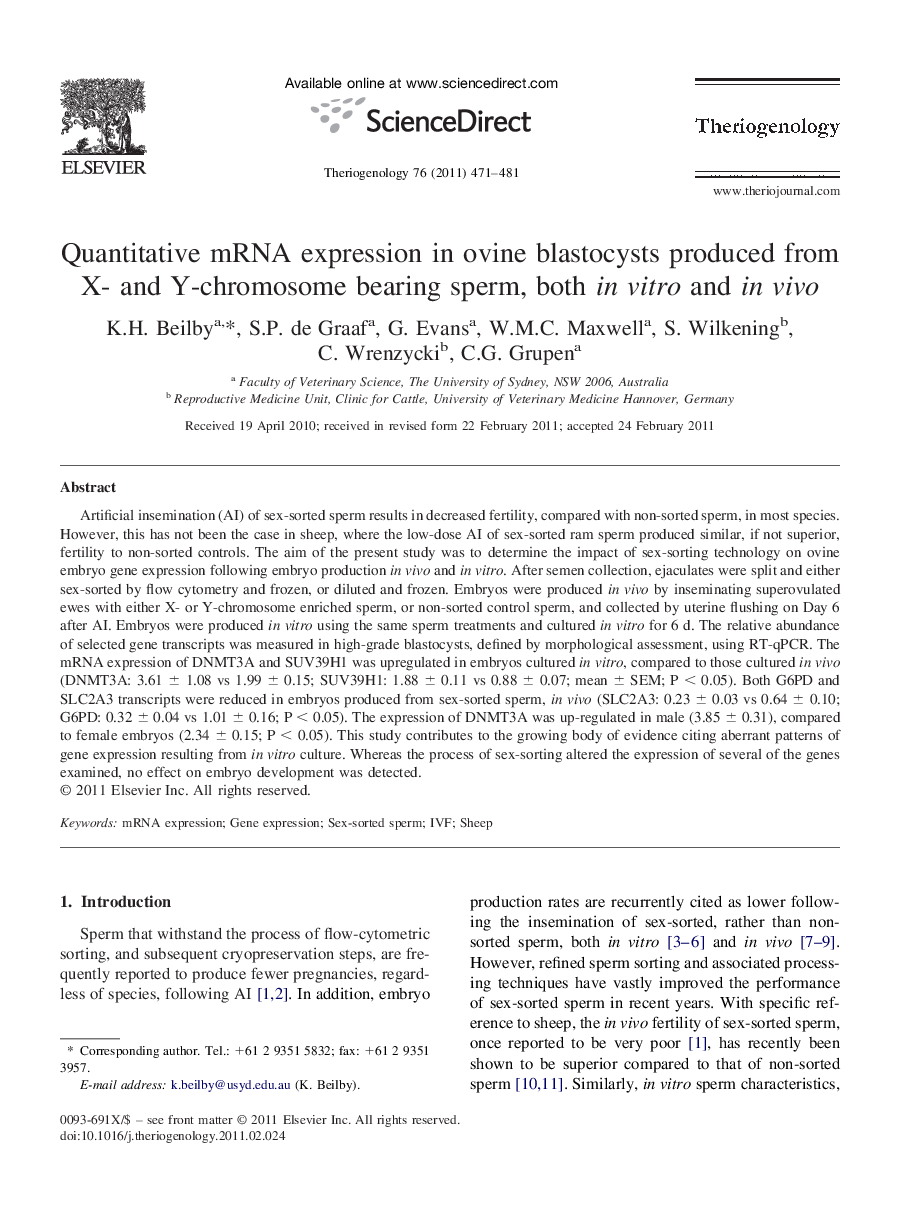| Article ID | Journal | Published Year | Pages | File Type |
|---|---|---|---|---|
| 10892697 | Theriogenology | 2011 | 11 Pages |
Abstract
Artificial insemination (AI) of sex-sorted sperm results in decreased fertility, compared with non-sorted sperm, in most species. However, this has not been the case in sheep, where the low-dose AI of sex-sorted ram sperm produced similar, if not superior, fertility to non-sorted controls. The aim of the present study was to determine the impact of sex-sorting technology on ovine embryo gene expression following embryo production in vivo and in vitro. After semen collection, ejaculates were split and either sex-sorted by flow cytometry and frozen, or diluted and frozen. Embryos were produced in vivo by inseminating superovulated ewes with either X- or Y-chromosome enriched sperm, or non-sorted control sperm, and collected by uterine flushing on Day 6 after AI. Embryos were produced in vitro using the same sperm treatments and cultured in vitro for 6 d. The relative abundance of selected gene transcripts was measured in high-grade blastocysts, defined by morphological assessment, using RT-qPCR. The mRNA expression of DNMT3A and SUV39H1 was upregulated in embryos cultured in vitro, compared to those cultured in vivo (DNMT3A: 3.61 ± 1.08 vs 1.99 ± 0.15; SUV39H1: 1.88 ± 0.11 vs 0.88 ± 0.07; mean ± SEM; P < 0.05). Both G6PD and SLC2A3 transcripts were reduced in embryos produced from sex-sorted sperm, in vivo (SLC2A3: 0.23 ± 0.03 vs 0.64 ± 0.10; G6PD: 0.32 ± 0.04 vs 1.01 ± 0.16; P < 0.05). The expression of DNMT3A was up-regulated in male (3.85 ± 0.31), compared to female embryos (2.34 ± 0.15; P < 0.05). This study contributes to the growing body of evidence citing aberrant patterns of gene expression resulting from in vitro culture. Whereas the process of sex-sorting altered the expression of several of the genes examined, no effect on embryo development was detected.
Related Topics
Life Sciences
Agricultural and Biological Sciences
Animal Science and Zoology
Authors
K.H. Beilby, S.P. de Graaf, G. Evans, W.M.C. Maxwell, S. Wilkening, C. Wrenzycki, C.G. Grupen,
